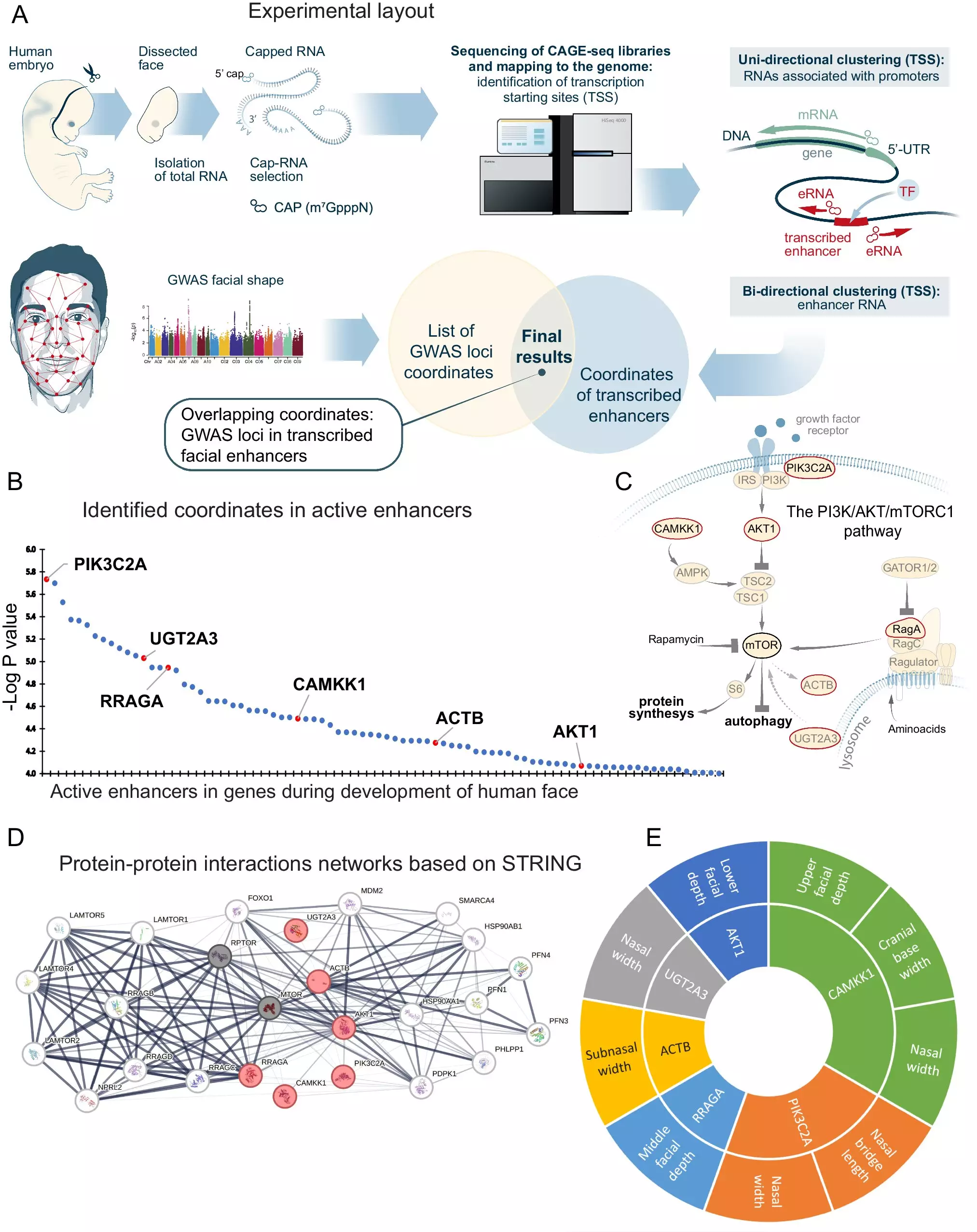The correlation between a mother’s diet during pregnancy and the development of her offspring has always been a topic of interest among researchers. An international team of researchers recently conducted a study that explores how the amount of protein consumed by pregnant women can affect the facial development of their unborn children. This study sheds light on a new aspect of genetic and environmental factors influencing facial features.
The researchers initiated the study by sequencing genes from human embryonic facial tissue to identify enhancers related to genes associated with the mTORC1 pathway, which plays a crucial role in cell food processing. To further investigate this relationship, experiments were carried out on mice and zebrafish. The researchers activated and deactivated the mTORC1 pathway to analyze its impact on facial structure, leading to interesting findings regarding nasal passages and facial features.
The results of the experiments revealed that the activation of the mTORC1 pathway resulted in thicker nasal passages and larger facial features, while deactivation led to longer faces and larger snouts in zebrafish and mice, respectively. This demonstrates the significant role that the mTORC1 pathway plays in early-stage skeletal formation and facial development.
The researchers further explored the influence of maternal diet on facial development by feeding a group of mice a high-protein diet. The testing showed distinct differences in signaling compared to mice fed a normal diet. The embryos of mice given extra protein exhibited lower jawbones and larger nasal capsules, indicating a direct impact of maternal protein consumption on facial development.
This study suggests that maternal diet, specifically protein consumption, can have a significant effect on the facial development of offspring. These findings open up a new realm of understanding regarding the interplay between genetics, environment, and maternal nutrition in determining the physical characteristics of individuals. Further research in this area could unveil additional ways in which maternal diet impacts fetal development, providing valuable insights for future studies.

